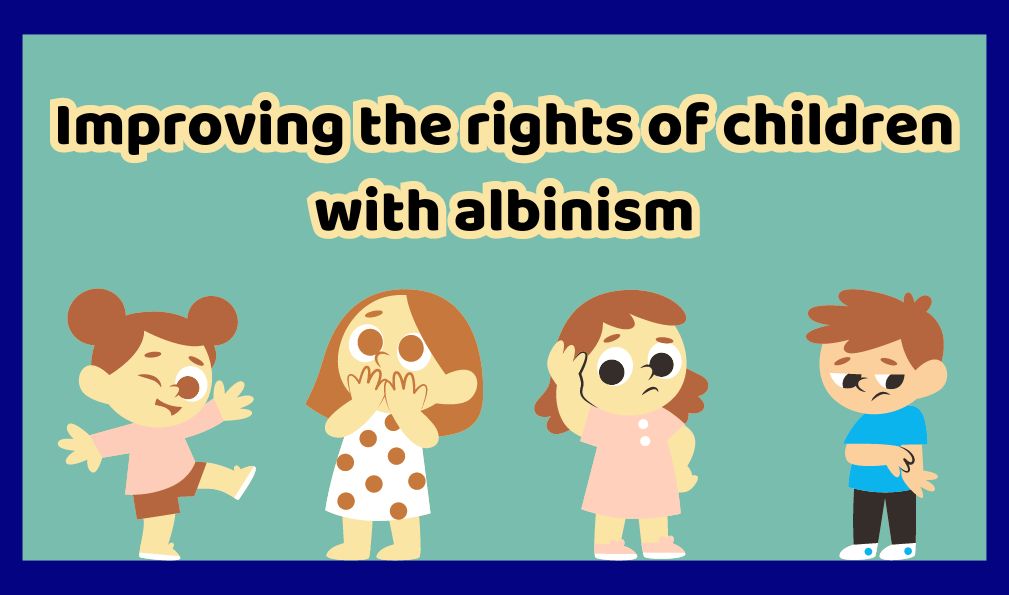Albinism is a rare, non-contagious, recessive genetic condition that limits the body’s ability to process melanin, reducing or eliminating pigmentation in the skin, eyes and hair. Albinism occurs if both parents carry the recessive albinism gene, in which case the probability of having an affected baby is 1 in 4 (25%). This probability is the same in each pregnancy and bears no relation to other births. Globally, 1 person in 18,000 has albinism. Oculocutaneous albinism type II (OCA2) is the most common type in Sub-Saharan Africa, where the condition has a higher prevalence: 1 in 1,400 are affected in parts of Tanzania, a frequency more than tenfold the global rate.
Persons with albinism are a unique group whose human rights issues have generally gone unnoticed for centuries; the result being deeply engraved stigma, discrimination and violence against them across various countries. In Sub-Saharan Africa, albinism is often understood to be a curse, or contagious. In some parts, people living with albinism, especially children, have been sadly killed, as some believe their body parts are able to cure different illnesses.
In Article 11 of the African Charter of the Rights and Welfare of the Child, education is one of the rights that should be freely available and provided to all children, regardless of their condition, however, Only half of all children with albinism in Tanzania complete primary school; even fewer attend secondary school. Those who do often struggle to read, and need vision devices to participate in class. When these are not available, academic underperformance follows. Many parents and teachers lack the knowledge to meet these students’ needs. Those who graduate often leave school ostracised and unskilled, unable to find formal employment.
Day of General Discussion by the African Committee of Experts on the Rights and Welfare of the Child
During the Day of General Discussion on the Solutions to the Challenges Faced by Children with Albinism at the 43rd Ordinary Session of the ACERWC in Maseru, Lesotho, the committee noted that they were cognizant of the challenges faced by children with albinism in Africa and notes specific provisions under the African Charter on the Rights and Welfare of the Child (ACRWC/the Charter) which provide protection from abuse for children with albinism, in particular, article 3 on non-discrimination; article 4 on the best interests of the child; article 5 on the right to survival and development; article 11 on the right to education; article 14 on the right to health; article 16 on protection against child abuse and torture and article 21 on the protection against harmful, social, and cultural practices. The Committee emphasizes the need for States Parties to fully implement these provisions of the ACRWC, ensuring that children with albinism are afforded the protections and opportunities they rightfully deserve, free from discrimination and harm, and supported in their development, health, and education.
24th Ordinary Session of the CSO Forum
During the 24th Ordinary Session of the CSO Forum, The Forum, through their outcome statement, noted that that children with disabilities have ordinary needs—for health and well-being, for economic and social security, to learn and develop skills, and to live in their communities. We call on the committee to address the discrimination that hinders their full enjoyment of the right to education. The CSO Forum committed to continuing to advocate for policy reforms that make education systems more inclusive and Create public discourse with parents, communities and children on the barriers that affect the full enjoyment of children’s right to education.
Download the Outcome statements below;
Day of General Discussion Outcome Statment
24th CSO Forum Outcome Statement

